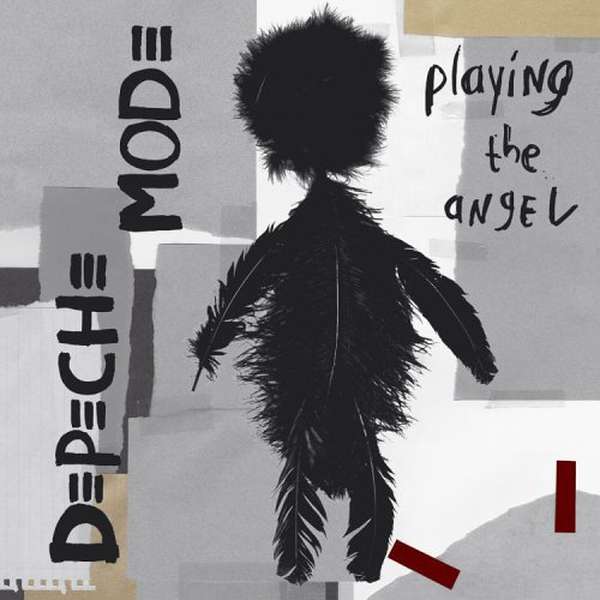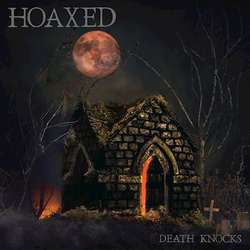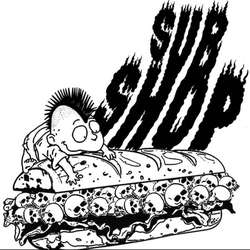I broke a fingernail tearing the shrink wrap off Playing the Angel - that's how excited I was to get into it. After the confusion caused by Exciter, and the months of consolation I indulged in with the two Singles collections, I was desperate for Martin Gore, Dave Gahan and that other guy who's name I had to look up because I can never remember it - Andy Fletcher, duh! - to just rise to the occasion, already! In an era when everything old is recycled by shady industry-types (and kids who know nothing about music history) so that it appears new again, the masters and servants of stripped and simple techno-based music seriously need to redeem themselves! Well, I'm pleased to report that my personal struggle and flirtation with cosmetic injury were absolutely worth it: we can sit in our respective dimly lit rooms by our lonesome selves, and breathe a collective sigh of relief.
Martin Gore and Dave Gahan are an exquisite pair: one is a full-on misery guts and the other, a glutton for punishment. And, well, that's kind of the way we like it, right? Muted downer techno elements known and loved by Depeche Mode fans the world over are present and accounted for on Playing the Angel, and the careful placement of some new elements (notably, the inclusion of three songs penned by Gahan), ensure that the album showcases a level of smooth, sophisticated broodiness that's almost untouchable.
"Suffer Well", the album's third track, is an amazing song - a worthy successor to classics like "Behind the Wheel," and it makes the barest of nods to the delicious and languid "Condemnation." The trance-like qualities of "Sinner Inside" imbue it with a catchy, danceable quality, even if that dance is a only a slow, depressed shuffle. The scratchy guitar which cuts in near the song's finish grates against the techno elements very effectively, and contributes an interesting textured quality.
The album's first single, "Precious," is polished and lovely, with an "Enjoy the Silence" feel - and we're on familiar thematic territory with Gore's faintly menacing lyrics and Gahan's mournful delivery of them.
"Macro" is perhaps the weakest of the album's tracks on first listen, though not by much. It presents us with challenging vocals from Gahan and music which is compellingly stripped and bare, but its arguable lyrical pithiness has the potential to compromise it (read: teenage doodles about God whispering, and the universal nature of things in the margins of a spiral notebook). However, it's easy to see how this song might have significant staying power - its conceptual simplicity will resonate with many listeners, and it is one of the most distinctly "new" things on Playing the Angel in that it doesn't immediately recall any previous Depeche Mode song.
"I Want it All," one of three songs penned by Gahan, is a bit of a treat: it's a soft passage that adds an element of variation to the album as a whole. Light and airy, full of bell-like sounds periodically grounded by clear, simple strings, it's a delightfully sad song that is well situated in the middle of the album.
"Damaged People" is a solemn track, but one that stands out. It's poppy without any peppiness whatsoever and really invokes the tremendous powerful effect of Depeche Mode standards like "A Question of Time", and "Here is the House." A strangely comforting song, it's infused with warmth even at its bleakest lyrical points: "When your lips touch mine / And I lose control / I forget I'm old and dying." Dark and bittersweet, it's Gahan and Gore at their exquisite, long-suffering best.
The two sides of the Depeche Mode coin are well-represented by Playing the Angel - the eminently danceable (even if it's just the depressed shuffle suggested above); and the intensely introspective. Truly, it's the perfect blend of what we've always needed from Depeche Mode. It caters to the inner overly emotional, self-obsessed teen who wants to curl up in one of those cocoon chairs wearing giant headphones in order to better contemplate his navel AND to the cynical, witty adult self that wants to retain possession of these faculties even while on the dance floor.
The moody keyboards, the dim but punishing and consistent techno beats, the fuzzy and grim shadowy parts that glimmer with the barest hint of incandescent bitternessââ¬Â¦ *sigh* it's all terribly dire and dreamy. Playing the Angel leaves one feeling faintly depressed, but totally satisfied at the same time, and that's as it should be. It's a return to a familiar place, after all, with atmosphere we recognize.
What is one to do with this album but love it? It's the next forward movement on the Depeche Mode trajectory; any surprises here are relatively mild but are completely in keeping with what we know as the best of Depeche Mode. We can't punish the boys for remaining their talented, loveably bleak selves. The bar perhaps hasn't been raised, but there's great comfort and consolation in knowing the ball hasn't been dropped.




